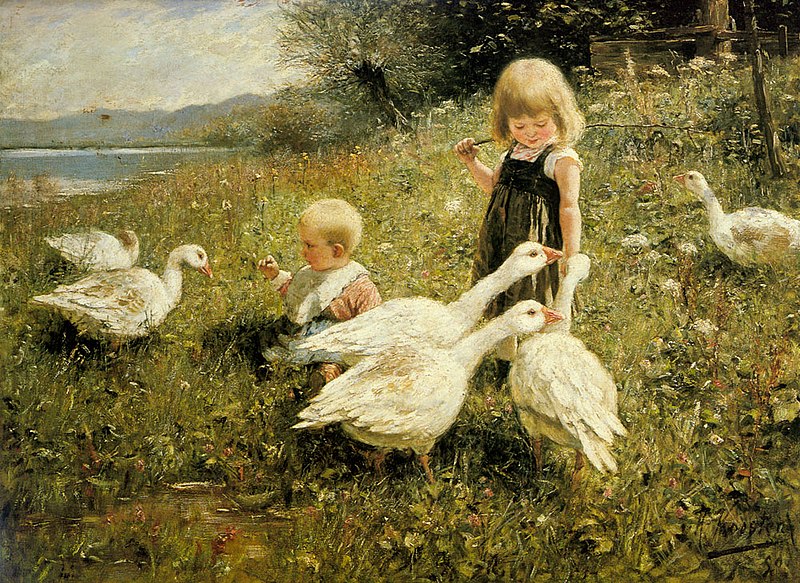 |
| Gänsefütterung by Alexander Koester, 1890 |
On the road last week, silly conversation led us to the word gander. And I started to wonder whether the two meanings I knew of–a male goose and to look around–were from the same root, or if it were one of those cases where they had nothing to do with one another.
So off I went to etymonline.com the next day to find the answer. =)
Gander has meant “male goose” since the days of Old English. Apparently for a while in the 19th century it was used to mean single men (like “stag”) too–which I didn’t realize! Fun!
In 1680 gander became a verb meaning “to walk aimlessly.” Kinda akin to a wild goose chase in that. Then in 1886, the verb arose that we’re more familiar with, “to take a long look,” from how a goose cranes its head around. So yep, definitely connected! In 1912, that verb became a noun–the look itself.
Always love discovering these things. =)



 Roseanna M. White is a bestselling, Christy Award winning author who has long claimed that words are the air she breathes. When not writing fiction, she’s homeschooling her two kids, editing, designing book covers, and pretending her house will clean itself. Roseanna is the author of a slew of historical novels that span several continents and thousands of years. Spies and war and mayhem always seem to find their way into her books…to offset her real life, which is blessedly ordinary.
Roseanna M. White is a bestselling, Christy Award winning author who has long claimed that words are the air she breathes. When not writing fiction, she’s homeschooling her two kids, editing, designing book covers, and pretending her house will clean itself. Roseanna is the author of a slew of historical novels that span several continents and thousands of years. Spies and war and mayhem always seem to find their way into her books…to offset her real life, which is blessedly ordinary.